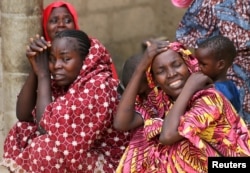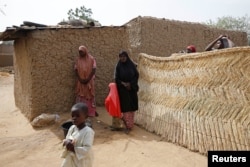Nigerian President Muhammadu Buhari will visit the state where 110 schoolgirls were abducted by suspected Islamist militants last month, his office said, as his security record comes under scrutiny less than a year before elections.
The 75-year-old former military ruler will also tour other hot spots from Monday onward, including areas hit by bloody clashes between semi-nomadic herders, the presidency added.
The former general, who came to power in 2015 vowing to crush Boko Haram's jihadist insurgency, has not stated whether he will seek re-election in Feb. 2019. But a surge in violence has cast a shadow over his term.
He has repeatedly declared the insurgents' defeat for more than a year. That was undermined by mass abduction in the town of Dapchi in Yobe state on Feb. 19 and an attack on Thursday that killed at least 11 people, including three aid workers in another part of the northeast.
His tour will begin in the "Middle Belt" state of Taraba, where herdsmen and farmers have fought over dwindling arable land, his office said.
He will also visit the central state of Benue and Zamfara in the northwest — both hit by fighting over grazing in recent weeks — along with Rivers state in the south, and Yobe.
"The president has decided to undertake an on-the-spot assessment of the various occurrences and to meet and console the communities affected," the presidency said.
Dapchi visit?
The presidency did not say whether Buhari would visit Dapchi on his trip to Yobe.
Buhari's predecessor, Goodluck Jonathan, was criticized for failing to quickly visit Chibok, the scene of another mass abduction of schoolgirls in 2014. That was seized upon by his detractors in the 2015 election campaign
The opposition People's Democratic Party (PDP) had already called on Buhari to visit Dapchi in the days following the abduction.
Boko Haram, which has killed tens of thousands of people since 2009 in its bid to create an Islamic state, lost most of its territory in the face of an offensive by Nigeria's army backed by troops from neighboring countries in early 2015.
But factions of the group have continued to carry out suicide bomb attacks and gun raids in the northeast, Cameroon, Niger and Chad since then.
The violence linked to grazing rights has killed more than 100 people since the start of the year.







